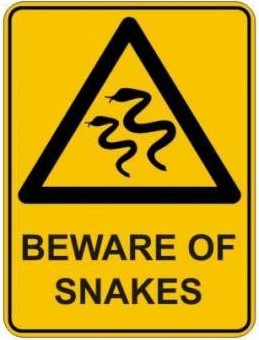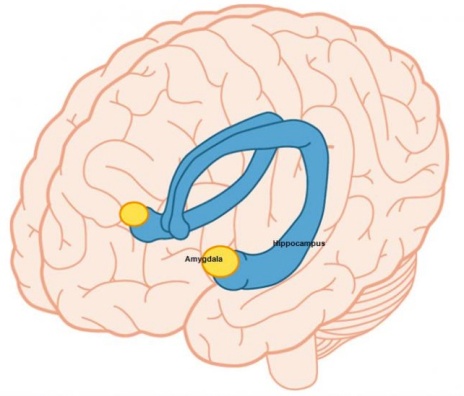Perhaps it’s because, in my blog, I seem to slam people with personality disorders that some of my readers, friends and colleagues wonder if personality disorders can be treated. I am often asked if individuals with PDs can change. The simple answer is, yes, it is possible.
Often times, success has been achieved with a combination of medication and therapy. If I ever find any statistics on prevalence rates for success I will share them with you. However, in the meantime, I want to share with you a story of an incredible woman who has helped countless people with borderline personality disorder (BPD). Her amazing insights came from her own battle with the disorder that she kept hidden up until 2011 when she ‘came out’ about having BPD. It just goes to show how strong the stigma of having a personality disorder is, so remember never to use a person’s diagnosis pejoratively.
And, just to set the record straight, yes, I have been hurt many times by people with PDs, but I don’t think that they are necessarily bad people. I have friends and family members who meet the criteria for having various different personality disorders and I love them for who they are…I just don’t always like their behaviour, nor will I allow myself to be abused by them in any way.
This post is dedicated to a friend who ‘Can’t Dance’ (you know who you are), but I would never hold this against her 😉
Here’s the brilliant article by Lily Katz:
Leading the way out of hell
Lily Katz
February 27th 2012

Marsha Linehan, UW professor and director of the Behavioral Research and Therapy Clinics (BRTC), said she was wrongly diagnosed with schizophrenia, though she showed symptoms of borderline personality disorder.
It’s 1961. Sitting in the back unit of the Institute of Living — a mental health center in Hartford, Conn. — Marsha Linehan made a promise to herself at age 17 that would help guide the rest of her life.
“I made a vow to God that I would get out of hell, and when I got out of hell, I would go back and get people out,” Linehan said.
For much of her adolescence and young adulthood, Linehan struggled with her mental health. Although she was never diagnosed with borderline personality disorder (BPD), Linehan experienced several of the symptoms, such as severe depression, self-harm, and suicidal thoughts.
Linehan, a professor of psychology and director of the Behavioral Research and Therapy Clinics (BRTC) at the UW, is known internationally for developing a therapeutic treatment called dialectical behavior therapy (DBT). It is now a widely used treatment for BPD. Before she was able to begin developing DBT, however, Linehan began treating herself.
The path to recovery
Linehan grew up in Tulsa, Okla. Because Linehan suffered from amnesia, she is unable to recall much of her childhood but said she was a good student, extroverted, and experienced no serious traumas. Yet as a teenager, she began to experience chronic headaches, depression, and frequent thoughts of suicide.
“You’d have to think of the very worst moment of your life, and then think of that moment being every moment of your life,” Linehan said. “It’s a suffering that’s sort of unimaginable, unexplainable, undiscussable, indescribable.”
But indescribable it isn’t, Linehan recently proved, when she stood in front of an audience at the Institute of Living and told her story publicly for the first time. Linehan said telling her story was one of the most difficult things she has ever done.
“I didn’t want to die a coward,” Linehan said. “That’s the beginning and end of it. I had no desire whatsoever to tell my story. I just didn’t want to be a coward.”
One of the worst experiences Linehan recalled was at a mental health clinic in Cook County, Ill., where she was put into seclusion.
“I was out of control — went out of control and didn’t have any way to get in control,” Linehan said. “I also thought I was more than one person. I never thought I was doing anything; I thought it was someone else doing it all.”
Shocked at the way she and others were treated, Linehan attempted to assist other patients in the clinic and began to think about how she would help others when she got out.
Linehan would spend most of her time at the clinic trying to keep another patient quiet because the workers would threaten to put her in seclusion.
“However, I couldn’t keep her quiet one day, and they came and got her,” Linehan said. “She started screaming and saying, ‘I’m waiting for my father,’ but she was 85, so of course the chances of her father coming were nonexistent. I’ll never forget this [hospital aide] saying to her, ‘Your father is six feet under.’”
Eventually, Linehan left the mental health center in Cook County, but only with the help of family members. The clinic refused to discharge Linehan, so she took them to court. The judge eventually allowed her to leave the mental health center if she agreed to be under the care of her brother.
After numerous visits and stays at various clinics and hospitals, Linehan’s path to recovery finally began at the Cenacle Retreat Center — a retreat for nuns in Chicago. The nuns offered Linehan a room, good food, kindness, and the space to connect with her own spirituality in a way that would turn her life around.
“I’ve always been spiritual,” Linehan said. “The core of me is spirituality, really. I may not look that way to anyone else or even act terribly spiritual, but it’s the more central relationship of my life.”
“Being Christian, I was sharing in the suffering of Christ,” Linehan said. “So I thought that some people get this part, some people get that part, and I got the suffering part. So I was kind of willing. I’ve always been in love with God. I’ve been in love with God my whole life.”
One day, Linehan was sitting in a small chapel at the retreat. A nun walked by and asked her if she needed help, but Linehan declined, thinking that no one could help her.
Suddenly, Linehan heard the voice of God.
“I was looking at the crucifix. The crucifix became gold, and the room was gold, and it was God speaking to me,” Linehan said. “I suddenly realized that God loved me, and I was totally transformed. God’s spoken to me quite a few times in my life, but not like that.”
It was a revelatory and transformative experience that enabled Linehan to love and connect with her inner self in a way she never had before, she said. Her recovery was sudden, though other recoveries from personality disorders often take more time. What she needed was to love herself and accept the struggles of her past.
“It was a little bit like being in love with someone your whole life, and then finding out they’re in love with you too,” Linehan said. “If you practice willingness, acceptance, and love, you too will be transformed.”
Developing DBT
She got her degree, began teaching, and, most significantly, developed DBT — a treatment for a population that was previously underserved. Her approach combines three strategies: radical acceptance, behavioral therapy, and mindfulness.
“I was trained as a behavioral therapist, and I believed in behavioral therapy just about as much as I believed in God — I’m not kidding,” Linehan said. “And so I decided I would cure [BPD]. … When I started my career, there really were no effective treatments. So I spent my life trying to develop effective interventions that helped people get out of hell.”
But the development of DBT came with obstacles. In the early stages, Linehan used treatment that didn’t work, and patients would become angry and unmanageable. After seeing her patients’ negative reactions, Linehan realized that she needed to incorporate radical acceptance into the mix, a therapy that involves teaching patients complete and total acceptance of themselves and the events that have occurred in their lives.
Linehan realized that she wasn’t skilled enough yet to practice DBT on patients and decided to take a leave of absence.
She traveled to two different monasteries, where she learned mindfulness. This, Linehan realized, was the third and final aspect that needed to be incorporated into DBT.
Linehan conducted a randomized clinical trial to test her approach and had her manual written by 1985. Over time, other clinicians began to see that the approach worked where others had failed.
“I have the absolute, utmost respect and admiration for her,” said Elaine Franks, Linehan’s assistant, friend, and the administrative coordinator at the BRTC. “I respect her for her creative, scientific mind. I admire her for her ambition and her diligence.”
The BRTC is a group of UW clinics that focus on the development of therapies, including DBT, for people with chronic personality disorders.
Another key component of DBT is the skills group. The purpose of the skills group is to teach patients skills that can help them cope with the challenges of daily life. Each patient also has a primary therapist and a group therapist. The job of the group therapist is to teach patients skills, while the job of the primary therapist is to make sure the patients are actively utilizing them in day-to-day life. Phone consultations with therapists are also available to clients who may need help.
The next step
After many years of research, testing, and trial and error, Linehan’s treatment method was finally complete. She was contemplating, at age 50, what was next in life.
It was her birthday, and Linehan was sitting at home, going through the box of her newly published books. Suddenly, God spoke to her again.
“You have kept your promise,” the voice said.
Linehan took this as a message from God that her mission on Earth — helping others improve their mental health — was complete.
“I spent six months waiting to die,” Linehan said.
But six months later, still very much alive, Linehan realized she had to figure out what she was going to do for the rest of her life. She decided to continue developing treatments and helping those who struggle with personality disorders.
Linehan is now director of the BRTC. The clinics’ primary focal point is DBT, but they are also working on various other projects, including High Risk for Suicide Adolescents and another project that is focused on certifying and accrediting individuals and groups to administer DBT.
“The number of people who are able to access really good DBT training is limited,” said Dorian Hunter-Reel, one of Linehan’s postdoctoral fellow students who works at the BRTC. “Frequently, the clinicians who think they know DBT maybe [have only] read her book or maybe … [have only taken] a course on DBT.”
Hunter-Reel, who is specifically involved with treatment development for clients with comorbid alcohol disorders, has enjoyed working with Linehan over the years.
“There’s a group of people who clinicians tend to avoid or can be hard for clinicians to work with, and she created a model that allows clinicians to work with clients who are high-risk,” Hunter-Reel said. “Her scientific contribution has revolutionized treatment for a whole subset of the population.”
Knowing that someone had to do it, Linehan told her own story to make known the struggles of those with BPD.
“I’m passionate about the fact that science is good,” Linehan said. “But it turns out, in essence … I’m a teacher more than I am a scientist,” said Linehan, with a smile on her face.

































